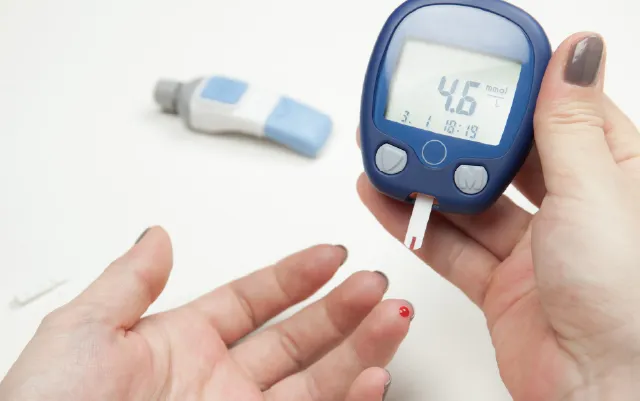
People with diabetes often cannot take care of themselves and therefore need help from others. In the case of a somatic disease or a complex disease, special care is needed, the main tasks of medicine are the administration of medicine, the establishment of a healthy diet, the functioning of the central body, and self-control. Hygiene. It's worth remembering that many people with diabetes have changes in their brains, so it's important to follow your doctor's prescription. This will help reduce complications caused by the disease.
The finer points of diabetes care
Diabetes can cause serious problems such as heart and kidney failure, vision loss, high blood pressure, blood vessel disease, and damage to blood vessels (painful diabetic neuropathy). In this case, amputation is often necessary. However, the risk of problems can be reduced if certain standards are followed. These include:
- blood sugar monitoring,
- healthy diet,
- physical activity (such as physical therapy or a walking day),
- personal hygiene assessment,
- specialist doctor.
In many cases, good care can offset many of the complications of diabetes. In general, the following conditions can be treated:
-
Nerve Damage
This condition is also known as diabetic neuropathy. This problem manifests itself as numbness, pain, and tingling in the extremities, sweating, and difficulty urinating. All of these can lead to increased blood sugar levels and nerve damage. Good care includes keeping your blood sugar under control, taking the right medications at the right time, following the diet your doctor recommends, and getting enough exercise.
-
There is a risk of infection
People with diabetes mellitus often suffer from bacterial and fungal infections. These usually affect the skin and urine. Caregivers help patients reduce their risk of infection. So keep yourself clean and keep your skin clean and dry. Nursing staff shower regularly. If there is a suspicion of infection in the patient's body, the nurse should immediately inform the doctor.
-
Blindness
People with diabetes mellitus often suffer from glaucoma or cataracts. This blindness usually occurs at an early age. This is because the blood vessels of the eye, including the lens, retina, and optic nerve, become damaged by high blood sugar. Patients need a good diagnosis. This is necessary for timely treatment if necessary.
-
Foot problems (Especially in the legs)
Foot problems can affect almost anyone, but people with diabetes mellitus are more likely to develop blisters and calluses. These patients often have broken skin, complicating the disease. This is due to nerve damage caused by diabetes, which reduces the sensitivity of receptors in the legs. Experts advise patients with this disease to pay attention to their health, especially the feeling of their legs, and follow the important rule of care: keeping their feet dry and clean. These simple tips can help reduce the risk of infection.
-
Kidney or heart failure
Diabetes increases the risk of heart or kidney problems. But problems can be avoided if you follow a healthy lifestyle and pay attention to the work of the above organs. Professionals who care for people with diabetes mellitus help to follow doctor's recommendations and take the right medication. Staff monitor physical activity and provide regular blood sugar monitoring. In addition, medical professionals attend to and care for people around the ward; they often do not only nursing work but also housework. This helps patients become strong, which is important in fighting the disease.

Recommend a healthy diet for people with diabetes
- Ask the doctor - the doctor can help you develop a healthy diet for diabetes based on the patient's personality and liking
- Food should be prepared using healthy ingredients and recommended products. Ask your doctor to see the patient's fat, protein, and carbohydrate intake.
- Adding fiber-rich foods to your diet can lower blood sugar levels.
- Check blood sugar before and after meals.
Diabetes patient Medication
But the good news is that diabetes is a controllable disease. Although there is no cure for
diabetes, there are many treatments that can help control diabetes and prevent or delay
complications.
Diabetes treatment usually involves lifestyle changes, medications, and sometimes a
combination of these. , insulin therapy.
Many types of medications can help control blood sugar in people with diabetes. These include:
-
Oral Medications
Oral medications are often given to people with type 2 diabetes because they work by
increasing insulin levels. They increase or stimulate insulin release. Examples of oral
medications include metformin, sulfonylureas, and DPP-4 inhibitors.
Rybelsus (semaglutide) tablets are available in doses of 3 mg, 7 mg, or 14 mg and are commonly used to improve blood sugar (glucose) levels in adults with diabetes. -
Injections
Injectable medications, such as GLP-1 agonists and SGLT2 inhibitors, can help lower blood sugar and may also provide cardiovascular and kidney benefits.
-
Insulin Therapy
Insulin therapy is used to control blood sugar in people with type 1 diabetes and some type 2 diabetes. There are different types of insulin: rapid-acting, short-acting, intermediate-acting and long-acting. Insulin therapy requires careful monitoring of blood sugar levels and dose adjustments as necessary.
Diabetes is a chronic disease that needs to be monitored and controlled regularly. Although there is no cure for diabetes, there are many treatments that can help control diabetes and prevent or delay complications. By making lifestyle changes, taking medications, and monitoring diabetes, people with diabetes can live healthy and fulfilling lives.

